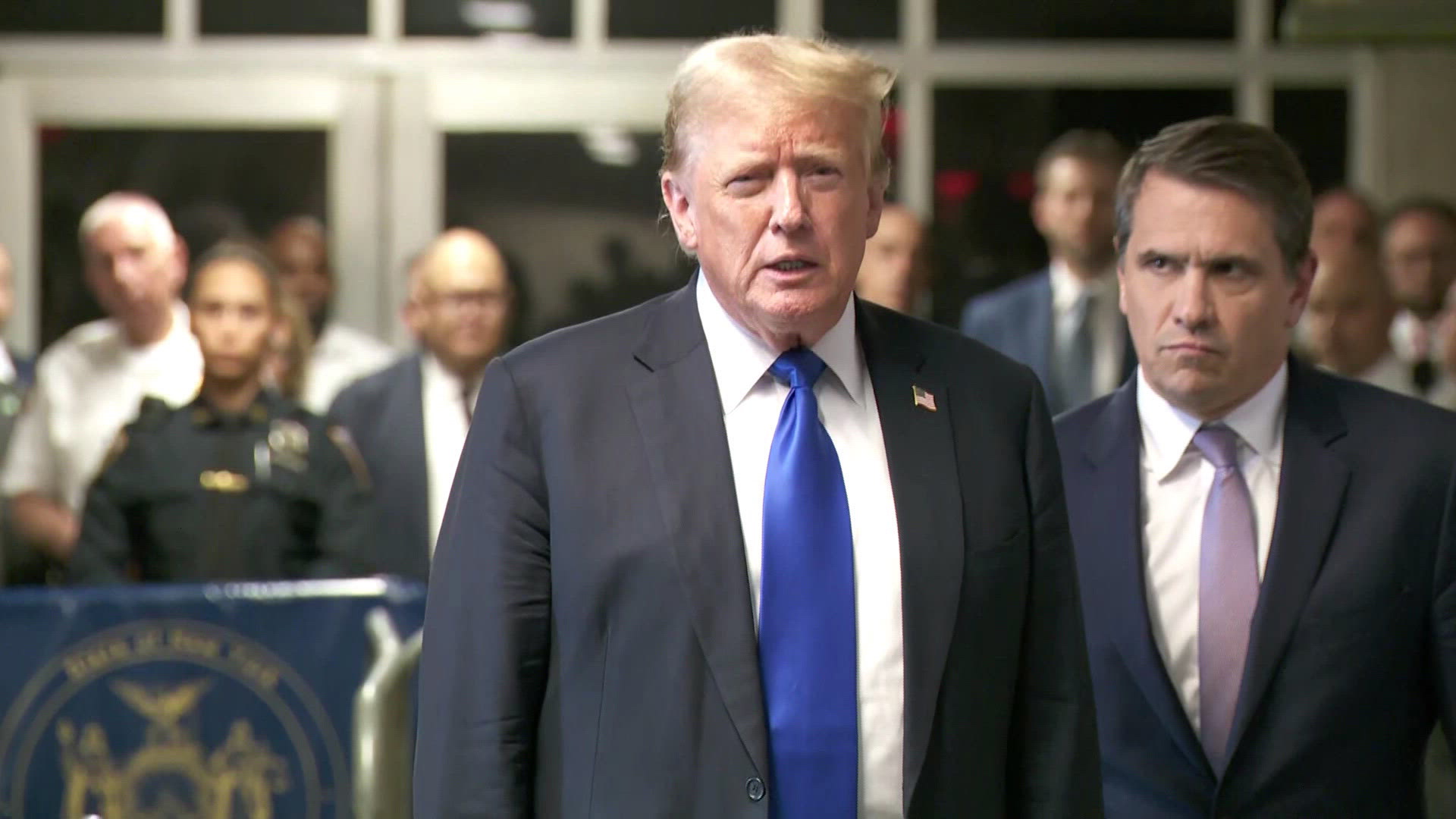WASHINGTON — The jury in Donald Trump's hush money trial has found the former president guilty of falsifying business records in a scheme to illegally influence the 2016 election through hush money payments to a porn actor who said the two had sex.
Jurors delivered the guilty conviction of all 34 counts on Thursday afternoon after nearly nine and a half hours of deliberations. The landmark verdict made Trump the first former American president to be convicted of felony crimes.
When will Trump be sentenced?
Judge Juan M. Merchan set sentencing for July 11 at 10 a.m. ET, just days before Republicans are set to formally nominate him for president.
Will Trump go to prison?
The big question now is whether Trump could go to prison. The answer is uncertain.
The charge of falsifying business records is a Class E felony in New York, the lowest tier of felony charges in the state. It is punishable by up to four years in prison, though the punishment would ultimately be up to the judge and there's no guarantee he would give Trump time behind bars. Manhattan District Attorney Alvin Bragg declined to say whether prosecutors would seek prison time.
It's unclear to what extent the judge may factor in the political and logistical complexities of jailing a former president who is running to reclaim the White House. Other punishments could include a fine or probation. And it's possible the judge would allow Trump to avoid serving any punishment until after he exhausts his appeals.
Trump faces the threat of more serious prison time in the three other cases he’s facing, but those cases have gotten bogged down by appeals and other legal fights so it is unclear whether any of them will go to trial before the November election.
Can Trump appeal the verdict?
After Trump is sentenced, he can challenge his conviction in an appellate division of the state’s trial court and possibly, the state’s highest court. Trump’s lawyers have already been laying the groundwork for appeals with objections to the charges and rulings at trial.
The defense has accused the judge of bias, citing his daughter’s work heading a firm whose clients have included President Joe Biden, Vice President Kamala Harris and other Democrats. The judge refused the defense’s request to remove himself from the case, saying he was certain of his “ability to be fair and impartial.”
Trump's lawyers may also raise on appeal the judge’s ruling limiting the testimony of a potential defense expert witness. The defense wanted to call Bradley Smith, a Republican law professor who served on the Federal Election Commission, to rebut the prosecution’s contention that the hush money payments amounted to campaign-finance violations.
But the defense ended up not having him testify after the judge ruled he could give general background on the FEC but can’t interpret how federal campaign finance laws apply to the facts of Trump’s case or opine on whether Trump’s alleged actions violate those laws. There are often guardrails around expert testimony on legal matters, on the basis that it’s up to a judge — not an expert hired by one side or the other — to instruct jurors on applicable laws.
The defense may also argue that jurors were improperly allowed to hear sometimes graphic testimony from porn actor Stormy Daniels about her alleged sexual encounter with him in 2006. The defense unsuccessfully pushed for a mistrial over the tawdry details prosecutors elicited from Daniels. Defense lawyer Todd Blanche argued Daniels’ description of a power imbalance with the older, taller Trump, was a “dog whistle for rape,” irrelevant to the charges at hand, and “the kind of testimony that makes it impossible to come back from.”

